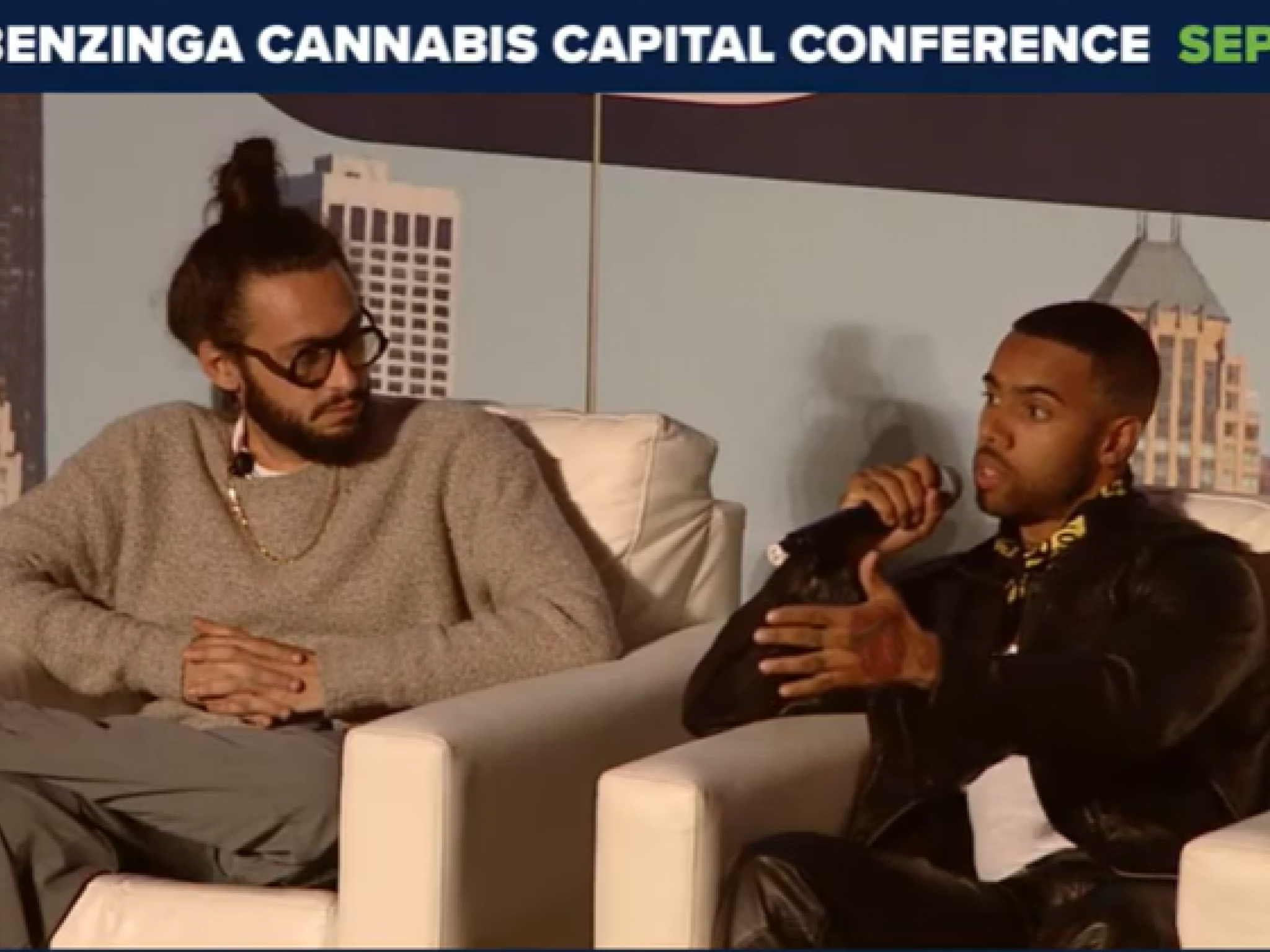
On day two of the highly successful Benzinga Cannabis Capital Conference in Chicago, High Times VP of content Jon Cappetta moderated a fireside chat with Vic Mensa, the Chicago rapper, actor and activist who founded 93 BOYZ, Illinois' first Black-owned cannabis brand.
Building Community
Victor Kwesi Mensah, known professionally as Vic Mensa, told Capetta that selling weed was his first hustle. “It taught me to work ethic and entrepreneurship and funded all of my first music projects. As someone with a lifelong experience of anxiety and depression, it's amazing to be able to help people facing those and other issues while working with something I love.”
Mensa's goal is to use art and entertainment to foster sustainable change by funding programs in Chicago. His vision includes “lifting up the neighborhoods around him while lifting spirits across the state. That vision- paired with the heaviest, headiest gas available anywhere- is what fuels 93 BOYZ today.”
"Teamwork Makes A Dream Work Right"
Mensa's brand is the first “to pair top-shelf genetics with a core mission focused on giving back to the community.”
Mensa wants to bring “a different angle to creativity in Chicago.”
Recently, he gave away $10K in free gas as he promotes his new weed brand. "To celebrate the launch of 93 BOYZ, we went to the gas station on the block where I grew up and gave away $10,000 of free gas. At a time when many people are struggling to fill their tank, it felt good to be able to help the community in a real way," Mensa said.
Reinvestment In The Black Community After War On Drugs
“The war on drugs has had a devastating impact on my community, and yet our representation in the cannabis industry is less than 2%,” Mensa said, adding that 93 BOYZ is “changing that narrative while combining high quality, tastemaker weed with socially conscious initiatives."
The idea behind 93 BOYZ is to create a cutting-edge entity while at the same time "reinvesting in the community and doing things that build the community that we're a part of. We have to build a coalition, we have to build a community of black brands in the space."
Mensa is in daily contact with people serving time in prison for non-violent cannabis offenses. "If you expunge all the weed records and you release people that are currently incarcerated for cannabis you can't actually trace whose first arrest was for smoking weed."
Working On Criminal Justice Reform
Among community initiatives, 93 BOYZ will undertake a partnership with Books Before Bars, a nonprofit dedicated to providing books to underserved Illinois prison libraries and youth facilities, giving inmates resources that could change their lives.
"I'm passionate about it because I've been sending books to prisons for 10 years and I've seen the magnanimous potential for the transformation when you give somebody the right book at the right time."
Cannabis Community: A Spiritual Path
Mensa recalled starting his brand. "I was just thinking about how do I push freedom, how do I scream freedom. I don't think it would be responsible of me to come into this game and in this industry that has been responsible for stealing the freedom of so many if I was not finding a way to give freedom."
Social Equity Matters
Mensa talked about barriers to getting into the cannabis industry in Illinois, which has been "so much smoke and mirrors, and the politics surrounding it have been just rife with corruption."
He noted that his community is still being left out. "The barriers and limitations leave out most of the people who could be considered real social equity applicants," he said. "Not to mention all of the larger companies propping up black figureheads and writing into the deals diminishing clauses to bring their ownership down to zero and to take them out of the game."
Finally, he reflected on how to use resources to create employment and increase access to education and housing. "Those are the ways that we impact Chicago and I think that if you're operating in Chicago and you're not thinking about that then you're a complete leech."
Watch the full interview HERE
Image by Benzinga







